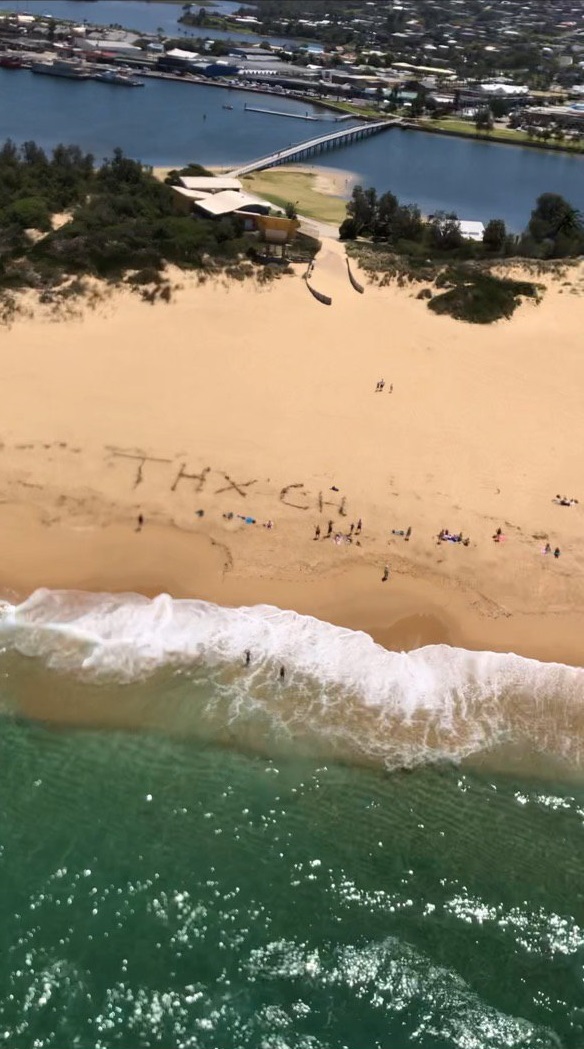SAF ends bush fire deployment in Australia
Sign up now: Get ST's newsletters delivered to your inbox
SINGAPORE - While delivering aid last month to Australians stricken by the ongoing bush fires, First Warrant Officer Sukhwinder Singh was received with gratitude by a farmer whom he met in Combienbar, Victoria.
After receiving provisions for his livestock, the farmer shared that he was also running low on water and fuel.
1WO Singh, a 20-year veteran, helped to relay the information to the Australian authorities.
"You could see that there was relief when he saw that there were people trying to help him out," said 1WO Singh on Wednesday (Feb 5). The 40-year-old is an air crew specialist with the Republic of Singapore Air Force (RSAF).
"His exact words to me were 'Thank you, and thank Singapore for me'. And he went on to say that we were invited to his house any time," added 1WO Singh, speaking with reporters through a phone call from Australia.
1WO Singh was among more than 70 RSAF airmen from the Oakey detachment in Queensland, Australia - comprising pilots, aircrew and engineers - who were deployed to help with bush fire relief efforts in south-eastern Australia since Jan 9.
In a statement, the Ministry of Defence said that the deployment concluded on Thursday. The two CH-47 Chinook helicopters and RSAF personnel involved will arrive back in Oakey on Friday.
Fires burning since September have destroyed about 12 million hectares across Australia's most populous states, including New South Wales and Victoria. The blazes have razed about 2,500 homes and killed an estimated one billion native animals.
Working alongside the Australian Defence Force, the SAF contingent contributed by delivering firefighting equipment and relief supplies, including water, medicine, and fodder for livestock. They also transported emergency service personnel.
In total, the RSAF Chinooks made over 30 trips, transported more than 260 people, and ferried 73 tonnes of supplies.
Lieutenant-Colonel (LTC) Benjamin Kwan Shee Kong, 42, who was the National Contingent Commander for the deployment, said he was honoured to have led the Singapore detachment in contributing to the relief efforts.
"Like all militaries, we are all set up for a purpose, which is to protect our way of life.
"So as a friend of Australia, when we came here, we were able to contribute and help them to protect their way of life, which was a privilege," said LTC Kwan, who is aviation commander at the Special Operations Task Force.
He was based in a control centre in Melbourne, where he coordinated with different parties such as the Australian police, firefighters, the Red Cross, the Australian Defence Force, and government departments.
LTC Kwan said that various Australian leaders who visited the centre were very appreciative.
"When I first arrived in the centre, because I was wearing my uniform with a Singapore flag on it, the first thing the Australians said was thank you," he added.
Captain Ian Joseph Yap - one of the Chinook pilots involved - said he witnessed the impact of the bush fires, including damaged roads and power lines.

"People were worried for their lives and homes, and others were stranded in their towns that had been isolated because of the damaged roads," said the 31-year-old.
The mission was not without challenges - visibility was sometimes low due to the haze and smoke. On some flights, he could not see beyond 1km, he said.
"This meant flying low and that posed additional risks, so we needed to ensure that these risks were mitigated with masks, and carrying out proper map and terrain studies to allow us to gain better situational awareness."
But there were times when the flights had to be called off due to safety concerns, said Capt Yap, who has served for 11 years.
Calling the deployment a humbling experience, Capt Yap said they received packed snacks from students in Melbourne and kind words from churchgoers as gestures of gratitude.
"When we flew along the coastline, a group of people even drew on the sand 'Thx CH!' (to say thank you)." he said, referring to the Chinook helicopters.


